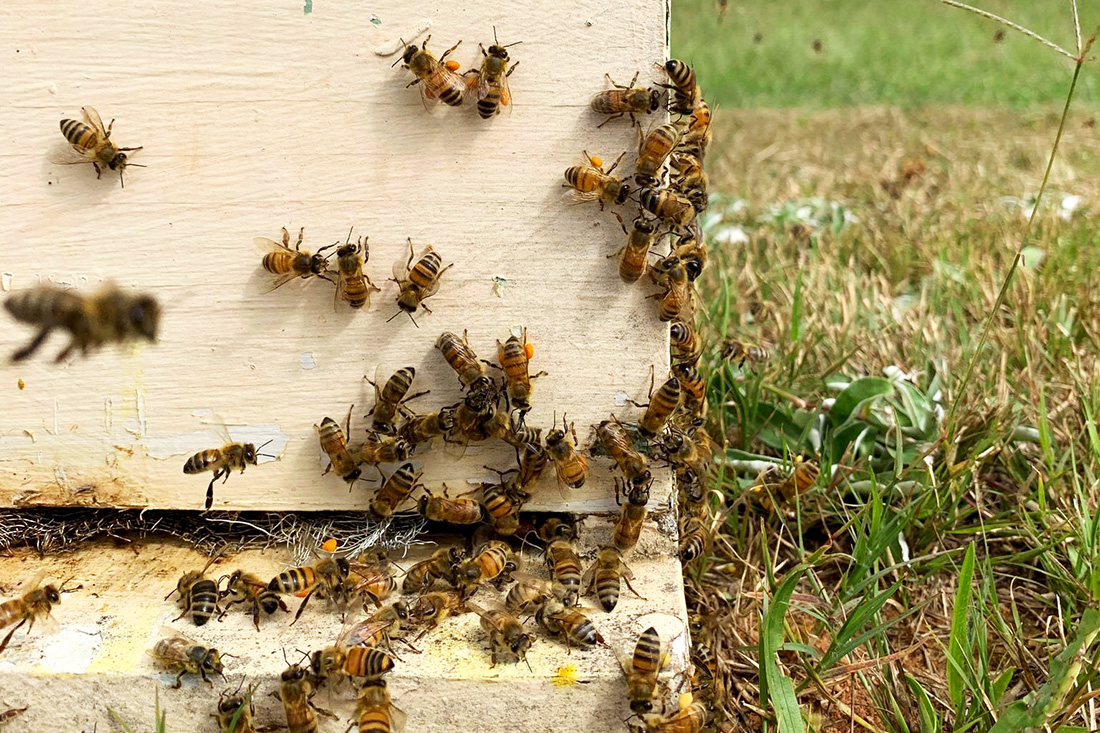|
Aedes aegypti mosquito on human skin |
Mosquitoes must have water for their larvae and pupae to develop. By emptying and removing containers that will hold water (buckets, tires, tarps, boats, etc.), you can significantly reduce the number of mosquitoes being produced on your premises.
Gutters, Tree Holes
Mosquitoes can also develop in gutters that become clogged and hold water. Change the water in birdbaths, wading pools and pet dishes every 3-4 days. Fill or grade out puddles, ditches and swampy areas so they don't hold water long.
There are even mosquito species that develop in tree holes. So fill tree holes with sand or mortar.
An important, but often forgotten, first barrier against mosquitoes are the screens on doors and windows. It's important to properly maintain screens, considering the widespread occurrence of West Nile virus in Georgia.
Screens should be made with 16- to 18-mesh wire. Screen doors should open outwards and have automatic closing mechanisms.
Neat Landscape
Dense vegetation provides a shaded, protected, still area where adult mosquitoes can rest during the day. So mow your yard regularly, remove weeds and trim shrubbery as short as possible.
If adult mosquito populations are unavoidable, use repellents.
Deet (N, N-diethyl-meta-toluamide) is the most effective and commonly used repellent in the country. Concentrations available typically range from 10 percent to 100 percent.
The lower concentrations are usually effective for most activities. If you're exposed to especially high mosquito numbers for extended times, the higher concentrations may be more appropriate.
Careful With Children
The American Academy of Pediatrics recommends that repellents for use on children up to 5 years old should contain no more than 10 percent deet. Apply the product to your own hands and then apply it to the child. Don't let children apply it to themselves.
Don't treat the child's face or hands, and wash off the areas you do treat after the threat of mosquito bites diminishes. As with all pesticides, it's important to follow label instructions closely.
If you have water you can't remove that's inhabited by mosquito larvae, you have a few readily available choices.
Feed 'em Donuts
Most home and garden stores carry the biological control agent, Bacillus thuringiensis var. israeliensis (Bti), in mosquito dunks, donuts or briquettes. This is very effective, yet safe to nontargets.
Another product is the highly refined alcohol-based, monomolecular surface film product, Agnique (Adapco Inc., 800-367-0659). This spreads across the water surface and prevents the larvae and pupae from breathing.
If adults are present and you want a temporary reprieve, you still have choices. Aerosols can be used in isolated sites, and propane or electric foggers have been reported to be very effective.
Barrier Bushes
You can also use barrier treatments with either permethrin or malathion. In this case, treat the vegetation surrounding the area to be protected. This targets the resting mosquitoes and those that land on the treated vegetation.
Most mosquitoes can easily fly 300 to 500 feet, and many can fly much farther in search of a blood meal. So homeowners often have nuisance levels of mosquitoes that come from off their property.
When this happens, it's wise, helpful and courteous to help elderly neighbors keep their yards free from mosquito breeding and resting places.







